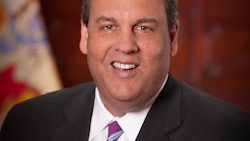
D.C. Mayor Muriel Bowser
Update 2/26/15: Mayor Muriel Bowser posted on Twitter (@MayorBowser) that she stands with  Screen Shot 2015-02-26 at 11.20.42 AM
Screen Shot 2015-02-26 at 11.20.42 AM
At the eleventh hour of marijuana legalization in D.C. (set to take effect Thursday, Fed. 26),  House Republicans sent a hefty warning to D.C.'s mayor. According to The Washington Post, "two powerful House Republicans late Tuesday warned D.C. Mayor Muriel E. Bowser not to move forward with legalizing marijuana in the nation’s capital and they warned of stiff federal retribution if the city’s chief executive did not yield."
The warning came in the form of a letter, which read, "If you decide to move forward tomorrow with the legalization of marijuana in the District, you will be doing so in knowing and willful violation of the law,” and was signed by U.S. Rep. Jason Chaffetz (R-Utah), chairman of the House Oversight and Government Reform Committee, and Rep. Mark Meadows (R-N.C.), chair of the appropriations subcommittee that handles the D.C. budget–according the report in The Post.
Chaffetz told The Post "that if Bowser and city officials are 'under any illusion that this would be legal, they are wrong. And there are very severe consequences for violating this provision. You can go to prison for this. We’re not playing a little game here.'"
In fact, they are now launching an investigation into the Council's legalization efforts. According to a report by Roll Call, "The lawmakers’ committees have jurisdiction over D.C. and the assertion is not a surprise. Chaffetz and others have been saying for weeks that the District cannot move forward with legalization. But in a departure from previous statements in which they said Congress did not need to take further action, they have opened a probe and are calling on D.C. to turn over employee information, spending figures and communications regarding legalization by March 10."
Roll Call also explains, "Their letter also brings up the possibility that moving forward with the initiative violates the Anti-Deficiency Act, which stipulates that D.C. cannot spend money that was not appropriated. If D.C. officials knowingly and willingly violated the ADA, the violation would be criminal, and penalties include a maximum $5,000 fine, up to two years in prison, or both."
Formally known as 'Legalization of Possession of Minimal Amounts of Marijuana for Personal Use Act of 2014,' Initiative 71, legalizing limited possession and home cultivation of marijuana for personal use, was approved by 70% of voters during the November 2014 elections.
"The measure allows residents aged 21 and over to grow up to six cannabis plants at home, and possess up to 2 ounces for personal use. It permits individuals to transfer–but not sell–up to one ounce of marijuana to another person who is also over age 21. It also provides for the use or sale of 'drug paraphernalia for the use, growing, or processing of marijuana,'" reported Cannabis Business Times (CBT).
Initiative 71’s approval followed the enactment of a decriminalization law in July that reduced cannabis possession penalties. As CBT reported, "When a person is found to have more than an ounce of marijuana, D.C. police may only confiscate it and issue a $25 ticket. The decriminalization law also prevents police from taking action when they smell marijuana, and from requiring identification from anyone carrying less than an ounce of cannabis."
CBT also reported, "The future of both measures fell into jeopardy [in December] when Congress passed its “cromnibus” federal spending bill. The mega-law contained a provision that restricted D.C.’s ability to regulate marijuana use, but its language was confusing, and the provision’s impact is still being sorted out …. The provision, or 'rider,' blocks the District from using taxpayer dollars to enact marijuana reforms. In the jumbled language typical of federal spending legislation, it specified only that D.C. must not spend its tax revenue to 'enact' laws decriminalizing marijuana–not 'enact and carry out,' which would have been more typical lingo."
D.C. policymakers have said the omission was intentional, CBT reported, "to allow the District to implement and carry out laws that have already been enacted."
The D.C. Council had submitted the marijuana-legalization initiative for Congressional review in January. "During those 30 legislative days, a member of Congress could attempt to strike down the initiative by introducing a joint resolution of disapproval, which would need to pass both chambers and be signed by President Barack Obama," explains Roll Call. "But Chaffetz, who has experience with disapproval resolutions (he introduced one in 2010 to block D.C.’s same-sex marriage bill), said a resolution was not necessary because Congress already blocked the law in December" in the spending-bill language.
Now, the Chaffetz-Meadows letter is "teeing up a confrontation with Congress," reports Roll Call.
But, "Even before the letter was sent, Del.Eleanor Holmes Norton, D-D.C., sent out a statement Tuesday afternoon," Roll Call reported, "warning Republicans against interfering in the District’s marijuana policy. 'If the Republican Congress, which can’t decide to how keep open one of its premier security agencies, the Department of Homeland Security, wants to pick a fight with the District over our local marijuana reform law,' Norton said, 'a fight is what they will get.'"



























